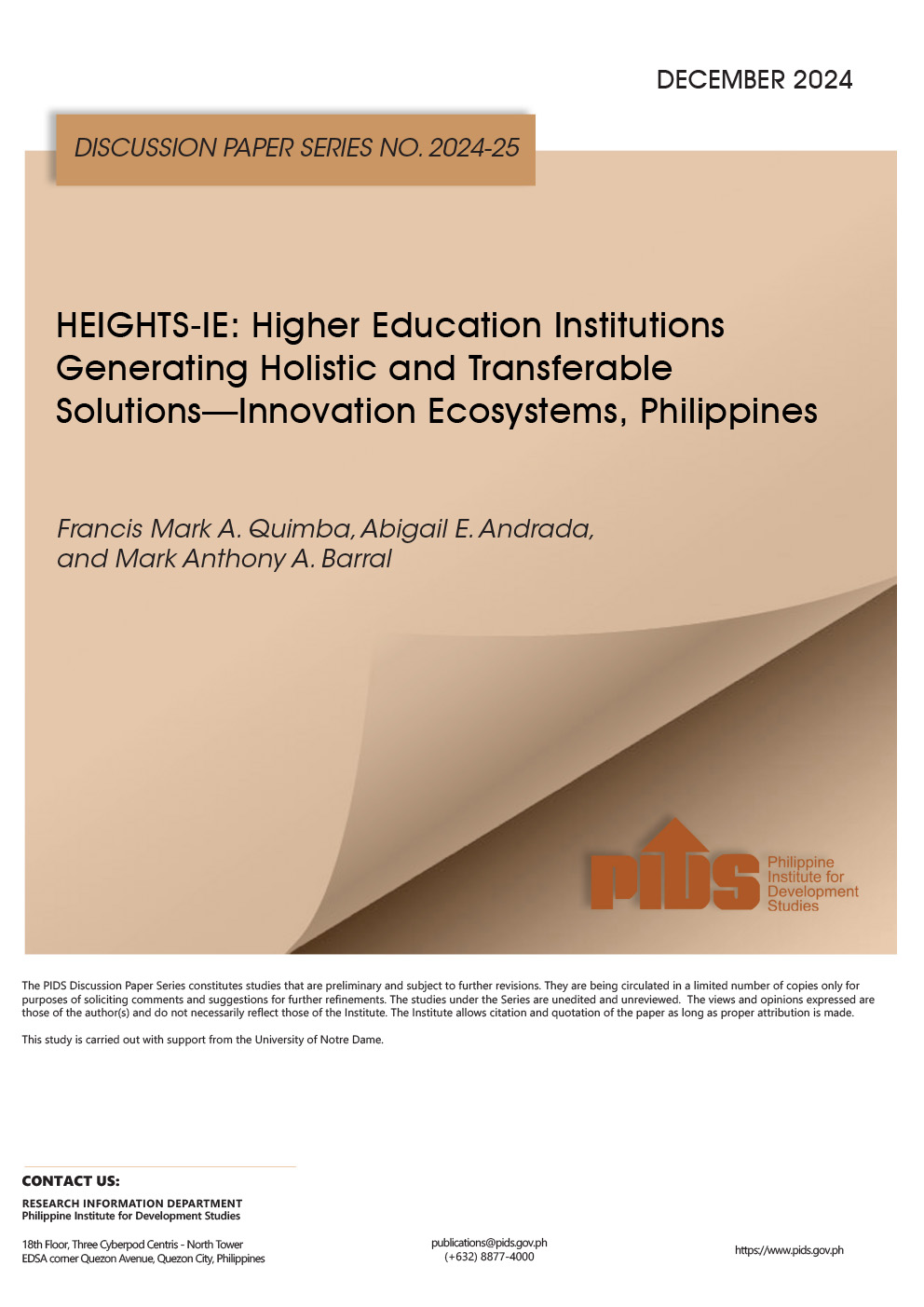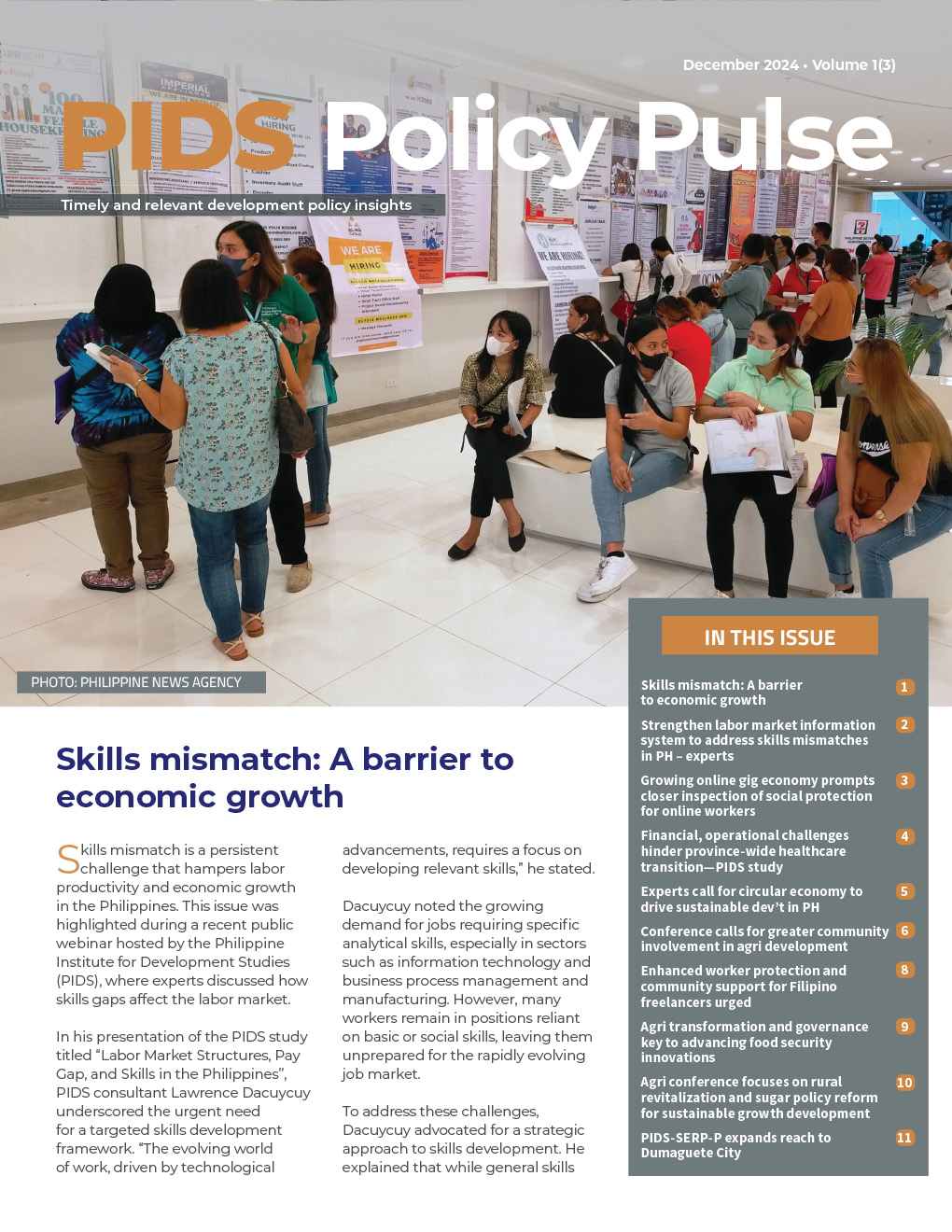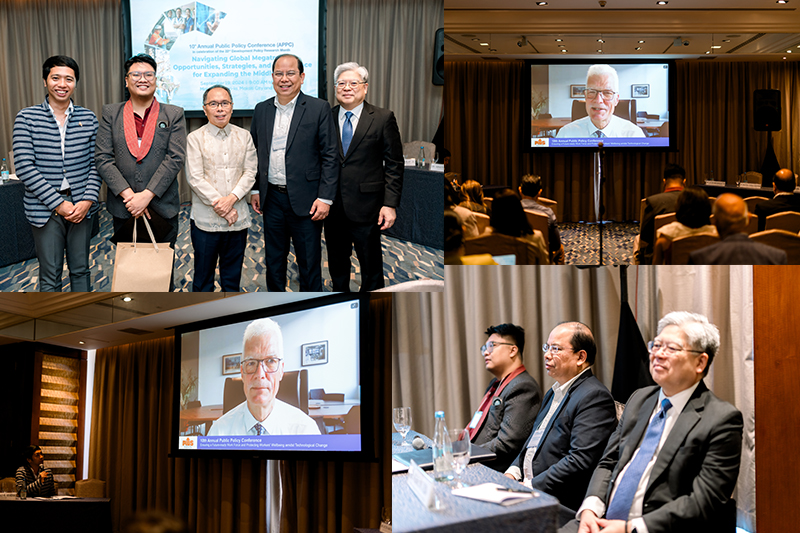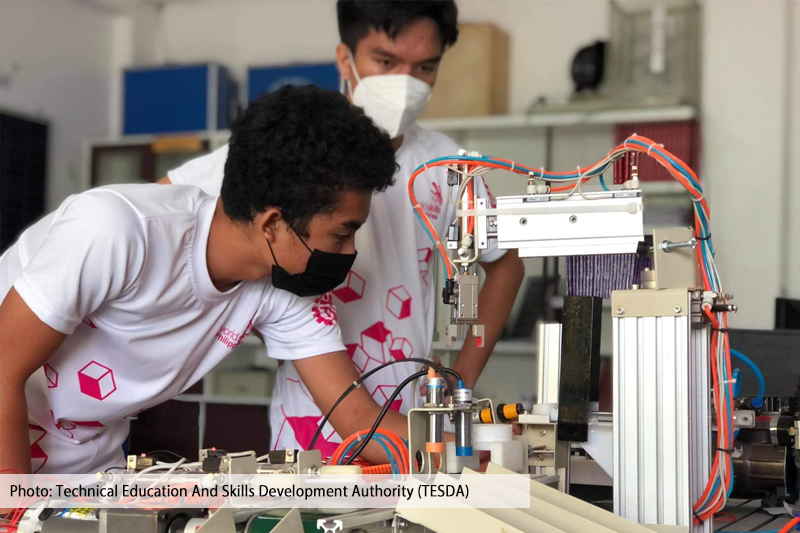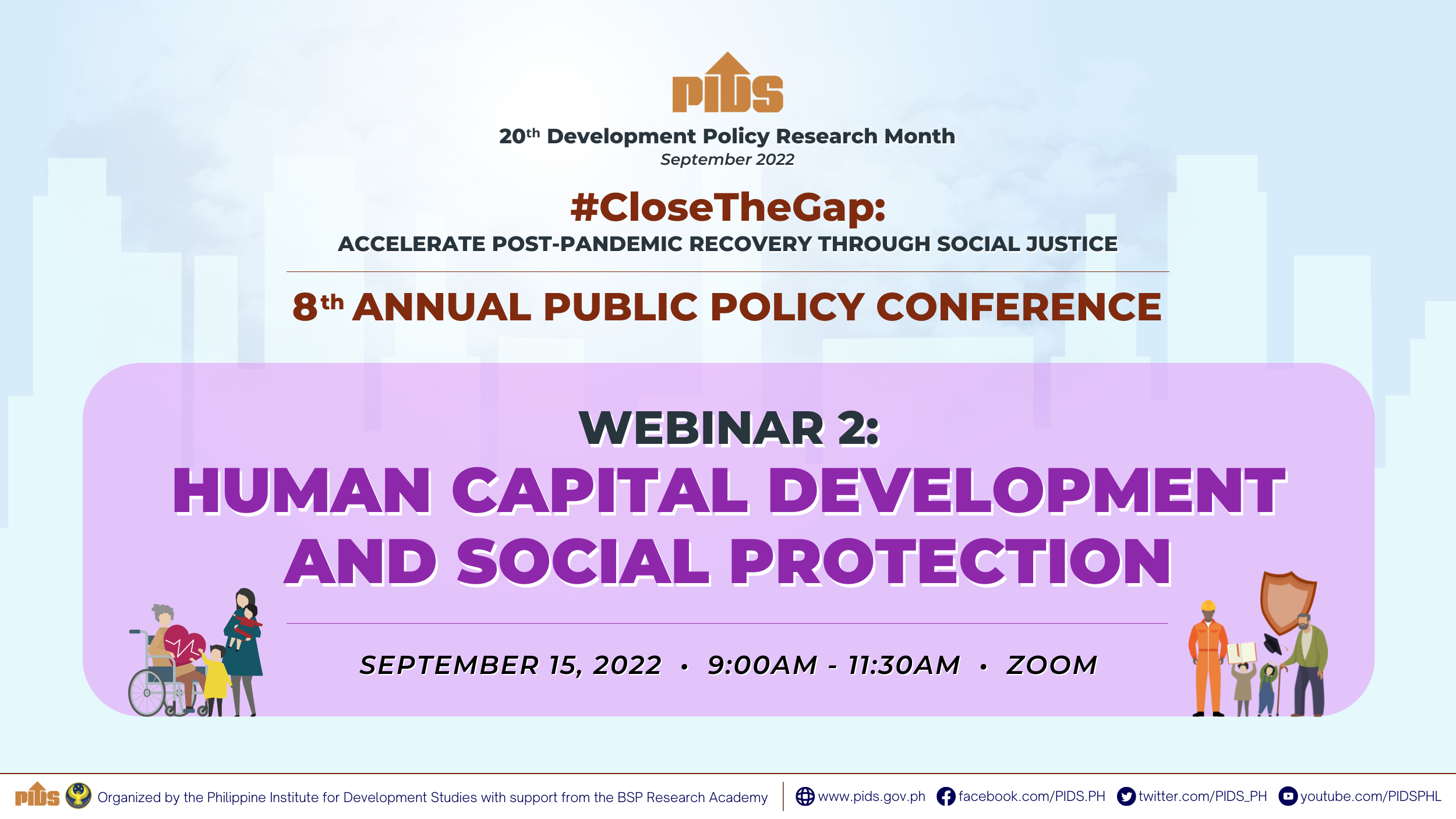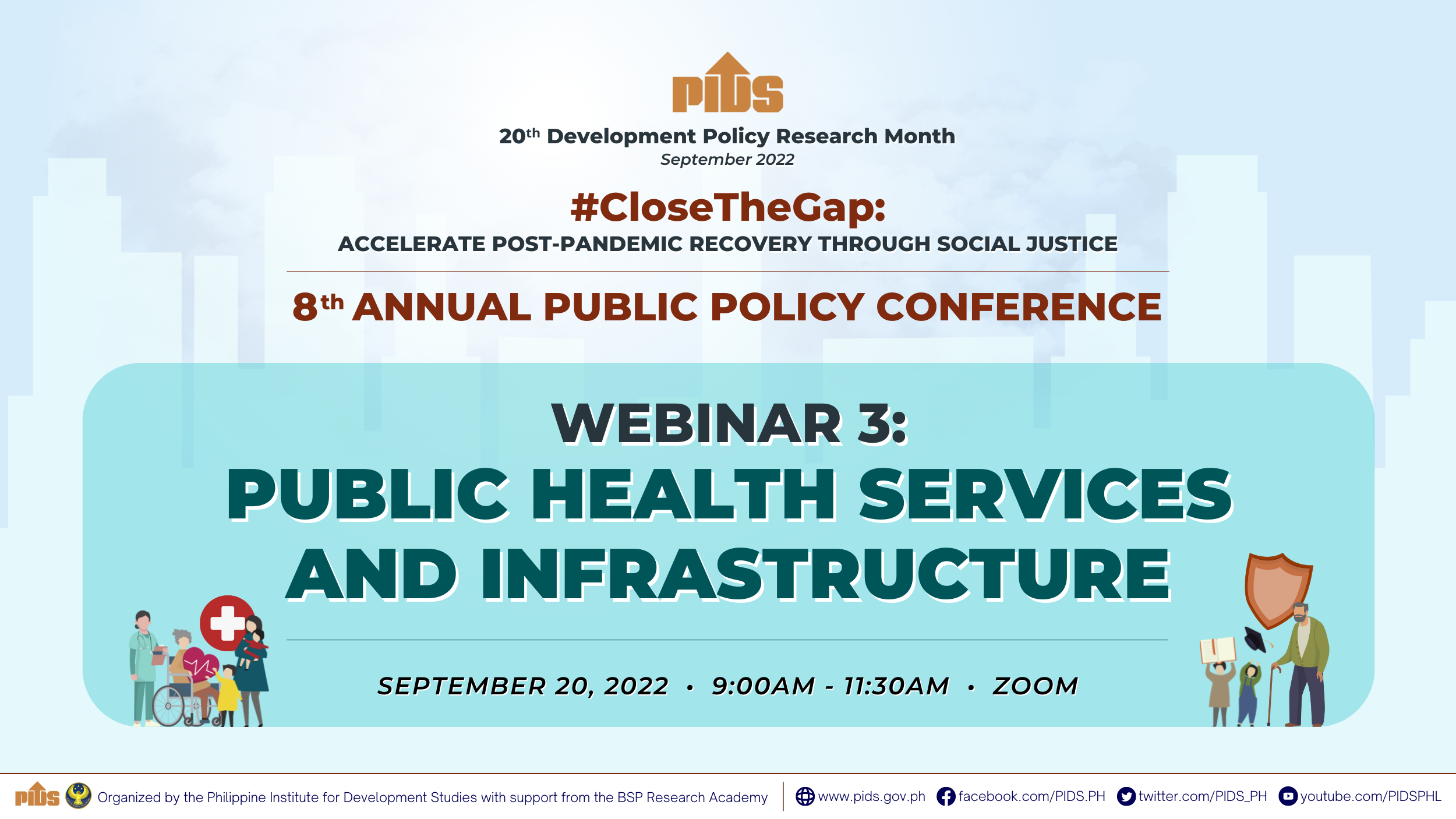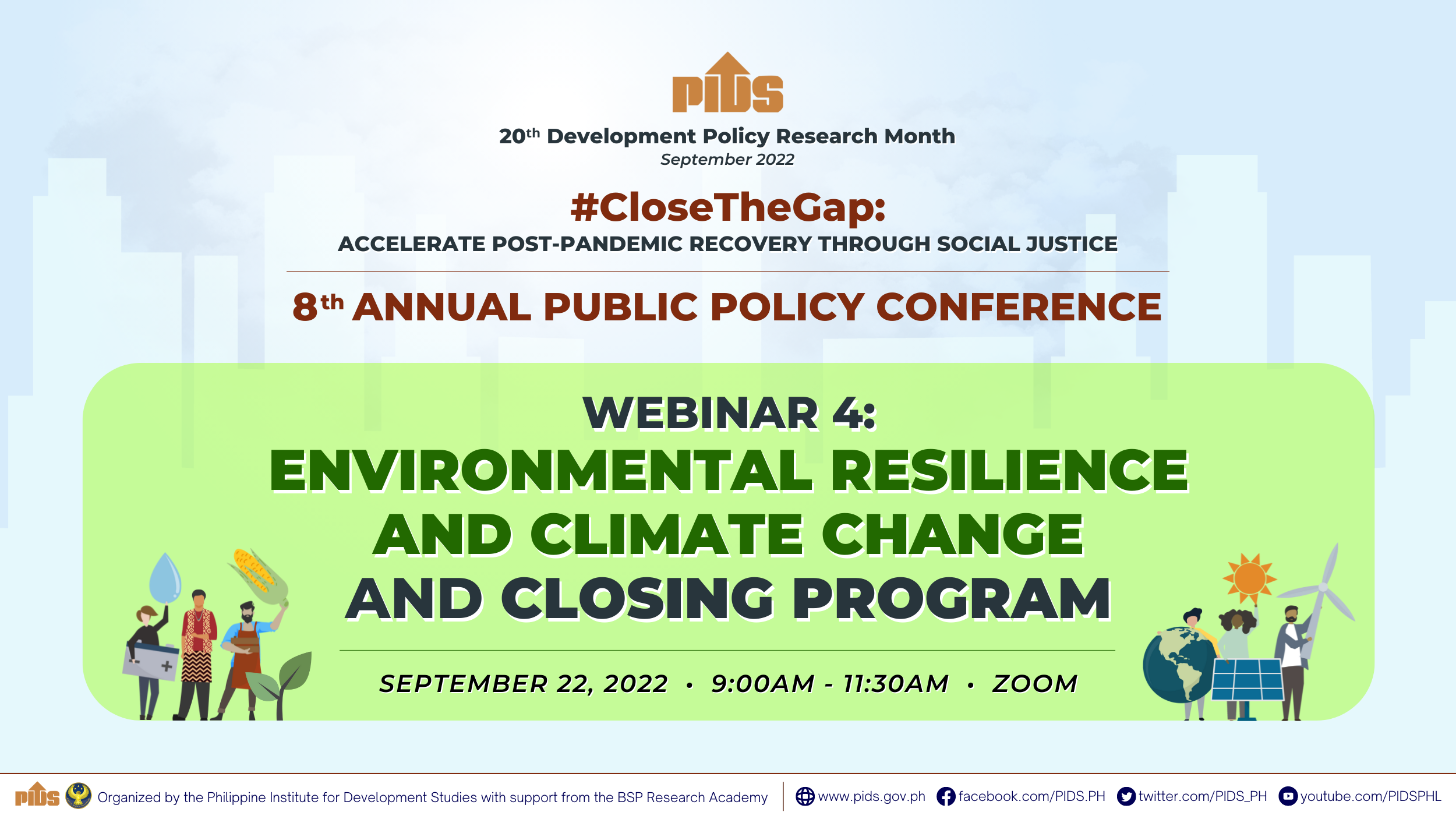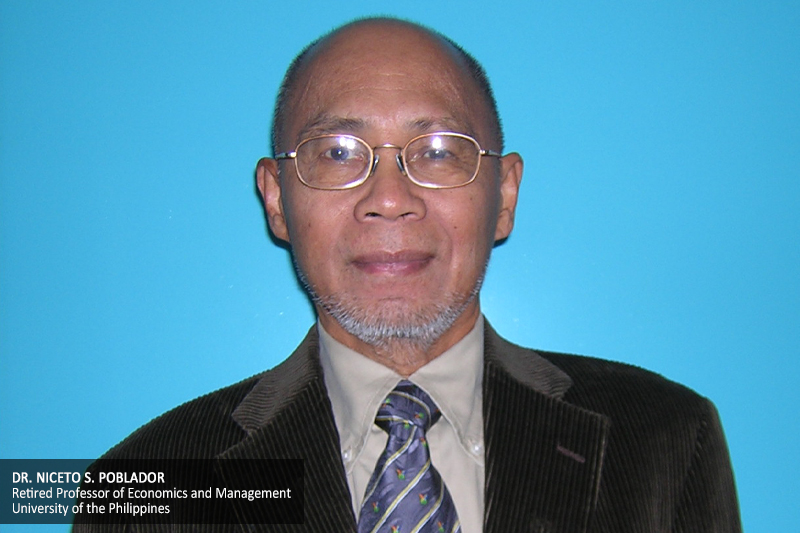
Business firms have no moral responsibility to serve the interests of others. However, the individuals that comprise these institutions are morally committed to look after the interests of others.
This was underscored by Dr. Niceto S. Poblador, a retired professor of economics and management at the University of the Philippines, during the first of the four-part webinar series of the 7th Annual Public Policy Conference (APPC).
“The role of business firms is to create economic value…Unlike institutions, people in [business] have values. They have a sense of what is right and what is wrong, of what is good and what is bad. They make value judgments and behave accordingly.”
Poblador said that the “unhampered profit-seeking behavior” of businesses could lead to many undesirable consequences, such as higher prices, poor-quality products, and poor services to consumers; unfairly low wages and poor working conditions for workers; unfavorable terms and conditions to business partners; and environmental degradation, low incomes, and unequal opportunities to large segments of society.
He explained that if a business would like to implement socially beneficial initiatives to achieve its long-term strategic goal, it has to change the way it does business.
Poblador noted that by implementing appropriate strategies and putting in governance mechanisms for creating value for its other stakeholders, the residual value that accrues to the owners of the firm, also known as profits, will consequently be maximized.
He pointed out that stakeholder strategies could create value for various stakeholders in many ways.
For customers, this can be done through product development, generous prices, and customer care. “In reality, value is created by consumers—or better yet, value is determined by consumers and not by firms. They decide what is useful to them and determine the prices that they are willing to pay for them or the so-called reservation prices,” Poblador said.
For workers, offering them higher wages, good working conditions, and providing them with skills development will make them more productive.
For business partners, establishing a mutually beneficial and trusting relationship with them reduces transaction costs.
For the community, this can be done by addressing the needs of the least privileged members of society and helping create a sustainable ecosystem.
“[F]irms can provide socially beneficial results, which can be done by maximizing shareholder wealth. They should do so by creating value for all participants in the production process—workers, business partners, customers, and the community as a whole,” Poblador concluded.
The APPC is the main and culminating activity of the Development Policy Research Month celebration led by the Philippine Institute for Development Studies every September. This year’s theme is “Reset and Rebuild for a Better Philippines in the Post-Pandemic World”, or in Filipino, “Muling Magsimula at Magtayo Tungo sa Mas Matatag na Pilipinas Pagkatapos ng Pandemya”.###
You may watch the APPC webinar on “Resetting Capitalism” at https://fb.watch/80cNUo490z/ or https://www.youtube.com/watch?v=TEEuBdc2Epk. For more videos of PIDS events, go to https://www.pids.gov.ph/videos.
This was underscored by Dr. Niceto S. Poblador, a retired professor of economics and management at the University of the Philippines, during the first of the four-part webinar series of the 7th Annual Public Policy Conference (APPC).
“The role of business firms is to create economic value…Unlike institutions, people in [business] have values. They have a sense of what is right and what is wrong, of what is good and what is bad. They make value judgments and behave accordingly.”
Poblador said that the “unhampered profit-seeking behavior” of businesses could lead to many undesirable consequences, such as higher prices, poor-quality products, and poor services to consumers; unfairly low wages and poor working conditions for workers; unfavorable terms and conditions to business partners; and environmental degradation, low incomes, and unequal opportunities to large segments of society.
He explained that if a business would like to implement socially beneficial initiatives to achieve its long-term strategic goal, it has to change the way it does business.
Poblador noted that by implementing appropriate strategies and putting in governance mechanisms for creating value for its other stakeholders, the residual value that accrues to the owners of the firm, also known as profits, will consequently be maximized.
He pointed out that stakeholder strategies could create value for various stakeholders in many ways.
For customers, this can be done through product development, generous prices, and customer care. “In reality, value is created by consumers—or better yet, value is determined by consumers and not by firms. They decide what is useful to them and determine the prices that they are willing to pay for them or the so-called reservation prices,” Poblador said.
For workers, offering them higher wages, good working conditions, and providing them with skills development will make them more productive.
For business partners, establishing a mutually beneficial and trusting relationship with them reduces transaction costs.
For the community, this can be done by addressing the needs of the least privileged members of society and helping create a sustainable ecosystem.
“[F]irms can provide socially beneficial results, which can be done by maximizing shareholder wealth. They should do so by creating value for all participants in the production process—workers, business partners, customers, and the community as a whole,” Poblador concluded.
The APPC is the main and culminating activity of the Development Policy Research Month celebration led by the Philippine Institute for Development Studies every September. This year’s theme is “Reset and Rebuild for a Better Philippines in the Post-Pandemic World”, or in Filipino, “Muling Magsimula at Magtayo Tungo sa Mas Matatag na Pilipinas Pagkatapos ng Pandemya”.###
You may watch the APPC webinar on “Resetting Capitalism” at https://fb.watch/80cNUo490z/ or https://www.youtube.com/watch?v=TEEuBdc2Epk. For more videos of PIDS events, go to https://www.pids.gov.ph/videos.


